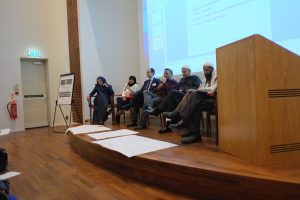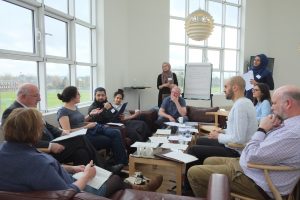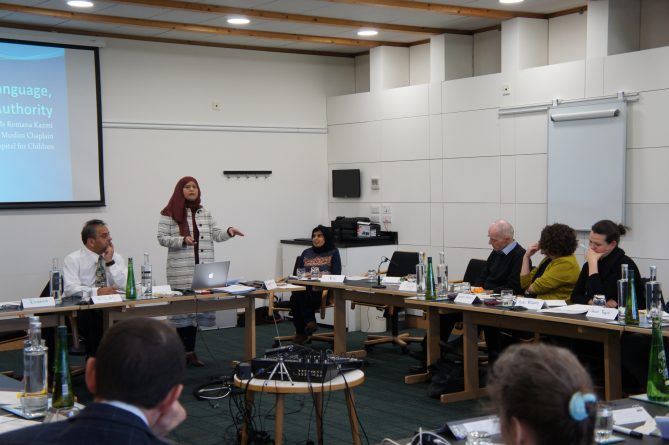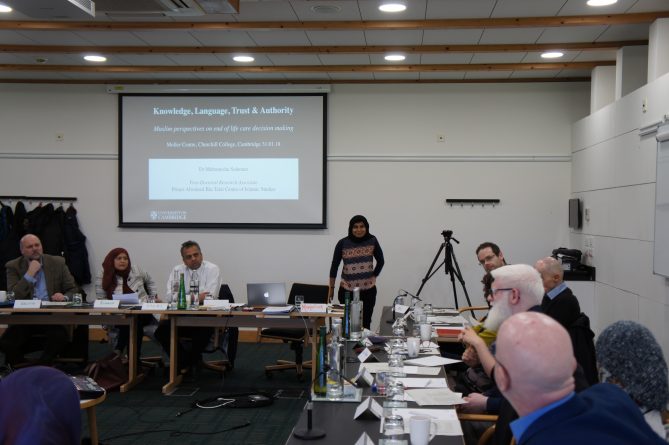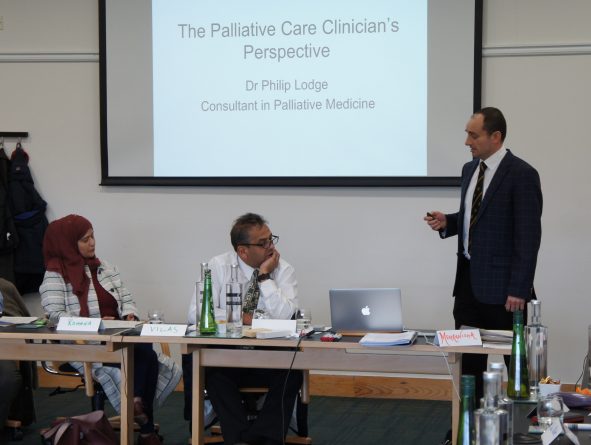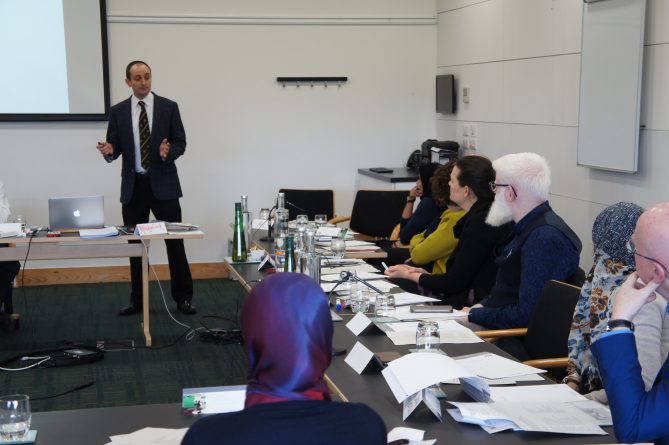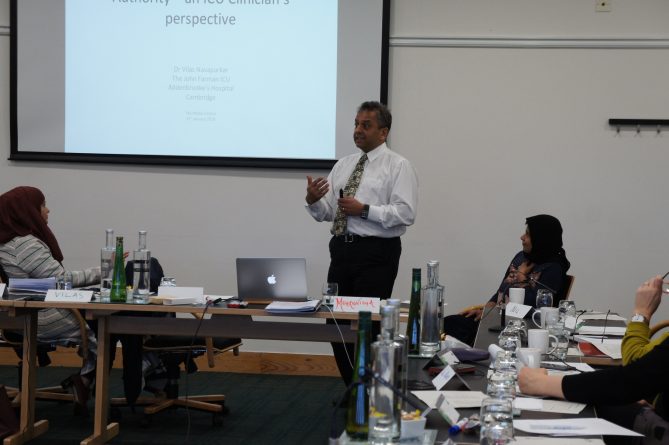Perspectives on End of Life Care
Perspectives on End of Life Care: Caring for the Muslim patient
Every community has its own religio-cultural understanding of end of life, its rites, rituals and beliefs. For Muslims, nearing the end of life is considered a transition period before entering another, everlasting, life. Research has shown that the religious beliefs of clinicians and other healthcare professionals are a strong determinant in their decision-making and attitudes towards end of life care services.[1] Such studies have been conducted over numerous countries in varying contexts and traditions. The medical literature also describes how patients’ own religio-spiritual characteristics influence their health and decisions about their care. They also assign particular meaning to experiences of health, illness and suffering within the construct of their own cosmology.[2] Many clinicians will not be of the same religion as their patient, and a lack of understanding in relation to what course of management is considered appropriate may lead to confusion, misunderstanding, unnecessary conflict, or even unseemly clinical events. There are an estimated 2.7 million Muslims living in the UK[3], a significant proportion of whom either work in or access health services provided through the NHS. Studies, however, show that little is known about their views on end of life and/or end of life care (EOLC) services. This study aims to address this knowledge gap by collating and analysing the views and experiences of Muslim patients and families and those involved in their care.
Aims of this study:
- To explore the views of Muslim healthcare staff, patients and families about their values, expectations and experiences of EOLC in the UK.
- To investigate the views of non-Muslim healthcare staff who are involved in caring for Muslim patients and their families at the end of life.
- To capture the views of policy makers who are involved in designing EOLC services in the UK.
- To investigate the views and experiences of Islamic scholars, imams and chaplains who are involved in EOLC decisions for the populations they serve.
- The collection and analysis of views from participants about their experiences and expectations of EOLC will enable a presentation of the range of challenges and concerns that currently exist in EOLC services within the NHS and may inform existing and future policy in this area.
- The study may also offer valuable insights into the Muslim community’s views on health, illness, life and death, adding layers of complexity and context to the existing discussions, within the UK, enabling the broadening of the understanding and consideration of these concepts.
End of life decision-making: knowledge, trust and authority – March 27
Following the successful meeting at the start of 2018, on March 27th 2018, the Centre of Islamic Studies hosted a second interdisciplinary training day for healthcare practitioners, chaplains, academics, spiritual leaders and policy makers. The event brought together UK wide experts in primary care, palliative medicine, critical care, chaplaincy, biomedical ethics, funeral services and bereavement to discuss themes related to the care of Muslim patients and families at the end of life.
The speakers included:
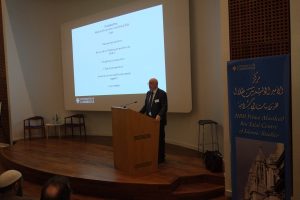 Right Reverend Dr Christopher Herbert
Right Reverend Dr Christopher Herbert
(Bishop of St Albans 1995-2009)
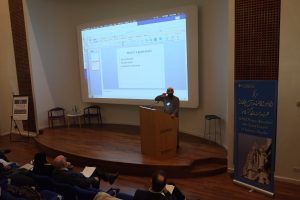 Imam Yunus Dudhwalla
Imam Yunus Dudhwalla
(Head of Chaplaincy and Bereavement Services at Barts Health NHS Trust)
Dr Vilas Navapurkar
(Consultant in Intensive Care Medicine and Anaesthesia, Addenbrooke’s Hospital, Cambridge)
 Dr Philip Lodge
Dr Philip Lodge
(Consultant in palliative medicine at the Royal Free and Marie Curie
Hospice)
Dr Sabena Jameel
(GP and Associate Dean of GP education, Birmingham)
Mr Mohamed Omer
(Board member of Gardens of Peace Cemetery & Muslim Bereavement Support
Service)
Dr Mehrunisha Suleman
(Post doctoral researcher, Centre of Islamic Studies)
The day consisted of speaker presentations, discussions and case-study workshops. See here for testimonials from some of the speakers and attendees.
The event was co-ordinated by Dr Mehrunisha Suleman – for more information please contact: ms520@cam.ac.uk.
End of life decision-making: knowledge, trust and authority – Jan 31
In January 2018 the Centre of Islamic Studies hosted an interdisciplinary meeting of healthcare practitioners, academics, spiritual leaders and policy makers. The seminar brought together UK wide experts in biomedical ethics, theology and law to discuss themes on knowledge, trust and authority in end of life decision making. The event was co-ordinated by Dr Mehrunisha Suleman – for more information please contact: ms520@cam.ac.uk or see here for the programme.
The day was a great success with extremely positive feedback from all who attended.
[1] Miccinesi G, Susanne F, Paci E. Physicians’ attitudes towards end-of-life decisions: a comparison between seven countries. Social Science & Medicine. 2005; 60: p. 1961–1974.
[2] Brockopp, Jonathan E., and Thomas Eich, eds. Muslim medical ethics: from theory to practice. Univ of South Carolina Press, 2008.
[3] Qureshi B. Transcultural Medicine Dealing with Patients from Different Cultures. London: Kluwer, 1989:161


